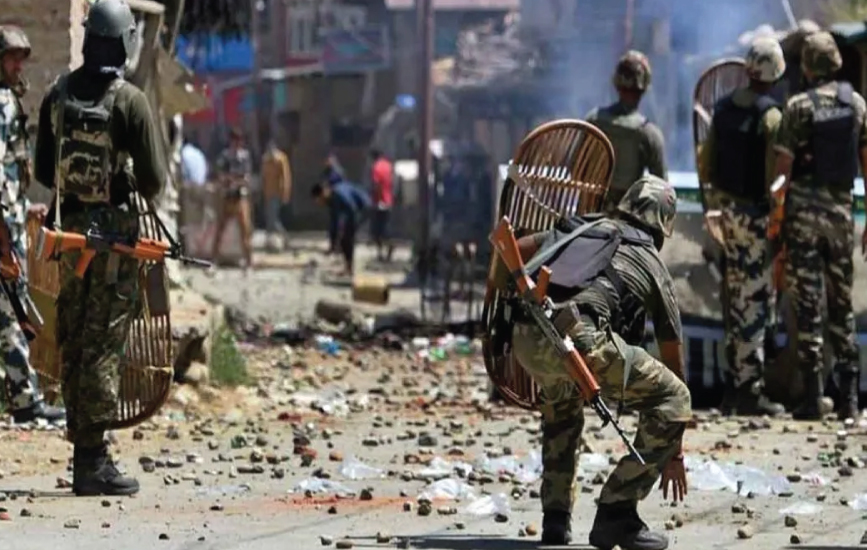Following Operation Sindoor, a military confrontation that temporarily thrust South Asia into the spotlight, a silent yet steady shift has begun to form in the global discourse, one that India may not have anticipated when it repealed Article 370 in August 2019. Though the Modi administration considered the move to be a permanent change in the status of Jammu and Kashmir into Indian Union territories, the recent developments, as Operation Sindoor unfolded, have breathed new life into international efforts by Pakistan for Kashmiris’ self-determination. Following the military confrontations and diplomatic maneuvering, Pakistan is once again questioning the global indifference to one of the most protracted unresolved territorial disputes.
From Article 370 to Operation Sindoor
Revocation entailed the decline of the special status of the state of Jammu and Kashmir, along with a partition into two Union Territories under direct rule by the Indian government. India continues to justify its actions, citing that the integration of Jammu & Kashmir will bring increased investment, better infrastructure, and greater stability. However, this is not the case on the ground. The manipulation of the population through new domicile policies, the gagging of the press, and the hardening of army garrisons indicate that the area is far from normal. India attempts to consolidate its hold with the help of administrative transformations and amended laws allowing nonresidents to legally purchase urban and agricultural land in Jammu and Kashmir. The Indian government reported issuing over 3.4 million additional residence certificates to outsiders in Kashmir, representing 30% of the region’s pre-2019 population of 12 million. Pakistan strives to undermine these maneuvers by depicting Kashmir as an ethical and humanitarian disaster to the international community.
Narratives of Development and Repression
Islamabad has strongly opposed the Indian account of development and anti-terrorism, touting it as a smokescreen for the violation of human rights. Allegations of torture and extrajudicial killings persisted, with the National Human Rights Commission registering 121 deaths in police custody, 1,558 deaths in judicial custody, and 93 alleged extrajudicial killings in the first nine months of 2024. These reports further support Pakistan’s statement that the abrogation of Article 370 made the Kashmiris more alienated and strengthened their resistance.
Fast forward to May 7, 2025, when India initiated Operation Sindoor. In the pretext of the Pahalgam false flag operation, India immediately blamed Pakistan. The attack entailed incursions into Pakistani territory and was met with a befitting response. Pakistan’s retaliation not only succeeded in thwarting the attack but also left a lasting symbolic mark in India, which was deeply rooted in its regional image. This hampered India’s perceived military superiority and revealed how precarious its Kashmir policy had been. Even more crucial is the fact that it provided an optimal environment, allowing Pakistan to enhance its diplomatic activity and restart the discussion of the Kashmir conflict on the international stage, which had remained relatively quiet since 2019.
Kashmir Back on the Global Stage
Discussions on Kashmir have resumed among Western think tanks. The European Parliament’s Subcommittee on Human Rights, along with some British MPs, has demanded reconsideration of the legal and moral issues surrounding India’s policy on Kashmir. Türkiye and Malaysia have expressed their support for the Kashmiri people, and the Organization of Islamic Cooperation (OIC) has repeatedly criticized human rights violations in Indian Illegally Occupied Kashmir. Such developments indicate how Pakistan’s diplomatic efforts are gradually transforming the international discourse on Kashmir.
Following the military escalation between nuclear-armed neighbors, US President Donald Trump not only de-escalated the tension between Pakistan and India but also offered to mediate the long-standing Kashmir dispute, reigniting a long-standing diplomatic controversy. Trump’s intervention internationalized the Kashmir issue, undermining India’s efforts to keep the issue on bilateral terms. It marked a turning point in Pakistan’s foreign policy, validating Pakistan’s advocacy for the Kashmiris’ self-determination.
Operation Sindoor has not redrawn maps, but challenged India’s assumption that the world no longer considers Kashmir. This demonstrates that force cannot suppress an issue based on identity, justice, and history. With tensions simmering, now is the time when dialogue should be given the opportunity. Strategic consistency must now be coupled with Pakistan’s reinvigorated diplomacy. Human rights advocacy, multilateral platforms, and diaspora activism should be further enhanced. Instead, the fate of peace in South Asia depends on political self-confidence and moral integrity. The Kashmir conflict must reach a conclusive resolution, and Operation Sindoor may go down in history as the catalyst that rekindled the world’s attention toward the issue.
The views expressed in this article are the author’s own. They do not necessarily reflect the editorial policy of the South Asia Times.



